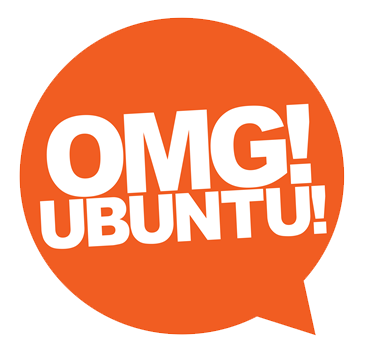#Linux Weekly Roundup for March 16th, 2025: #Debian 12.10, #KDE Plasma 6.3.3, #Garuda #COSMIC preview, #DXVK 2.6, #Ubuntu to adopt #Rust-based GNU Coreutils, #GStreamer 1.26, KDE Frameworks 6.12, #ChimeraLinux drops #RISCV support, #Audacity 3.7.2, #digiKam 8.6, #LXQt 2.2 features, #Mesa 25.1 defaulting to NVK, #Bodhi Linux 8 to ship with new theme, and more https://9to5linux.com/9to5linux-weekly-roundup-march-16th-2025
Recent searches
Search options
#bodhi
Bodhi Linux Shows Off New Theme, Revived Modules
A ‘fresh new look’ is heading to Bodhi Linux, the Ubuntu-based Linux distribution built around the Moksha desktop, a fork of Enlightenment 17. Noting that the look of recent releases has leaned towards the dark side—no, not that one, Darth—the team has decide to give the next release a lighter visual revamp by making a new theme, called Zenithal, default. “Zenithal, developed by Štefan Uram and based on the Ice theme by Simotek, introduces a polished light aesthetic that brings a fresh energy to Moksha. It also marks a first for Bodhi: windows and dialogs with rounded edges,” they say. Bodhi Linux’s 
#News #Bodhi #Distros #Enlightenment #EyeCandy
 https://www.omgubuntu.co.uk/2025/03/bodhi-linux-tease-new-theme
https://www.omgubuntu.co.uk/2025/03/bodhi-linux-tease-new-theme
Here is how you can keep your system updated while using a pinned #kernel version:
https://universal-blue.discourse.group/t/7113
Just not updating the entire system is not really a good option.
I need to try again but with my tests kernel 6.13.5 (with the supposed fix) did not fix the issue in #KDE #Okular #Flatpak
No idea if this is a different issue, doubt it kinda. Happens on 6.12.13 too, unlike the other apps

today in #fedora qa:
* sent a PR to update EOL procedure in the release process docs - https://pagure.io/infra-docs-fpo/pull-request/364
* sent a PR to make #bodhi updates-download get signed packages, if it can figure out the right key - https://github.com/fedora-infra/bodhi/pull/5859 (this was most of the day!) inspired by the discussion in https://pagure.io/fesco/issue/3370
@Simaj Je suppose que vous vouliez dire "Arrivé de Windows 11 en 2025", car Windows 10 va au contraire arriver à expiration en 2025.
Sinon, #Ubuntu (et ses dérivés, tel #Kubuntu ou #Bodhi) est effectivement un bon choix pour les débutants. (Tout comme #Mint.) Mais j'avoue que je serai curieux de voir une "install party" pour les utilisateurs qui ont déjà adopté #Linux et désirerai essayer d'aller plus loin. (Pas sûr qu'install party soit le bon terme pour un tel évenement.)
#InstallParty #Windows10 #W10 #Windows11 #W11 #FINdeWindows10 #FINdeW10
Some small wins that have pleased me...
1. Finally found a lightweight Linux that really does work on my very old hardware. I am liking #Bodhi Linux! Going to use it on all my boxes.
2. On Bodhi, GCC just worked and I have successfully compiled #RunCPM. My first Linux build from a GitHub repo!
3. In #CPM, in RunCPM, on Bodhi, I have successfully got #Zork working! That is what I wanted all along
Along the way I discovered the Humongous CPM archive. Bookmarked!
After over two years, I decided to install a new #GNULinux distribution on my daily driver laptop that I take to work and university.
Instead of with Arch, this time I went with (the Debian spin of) #Bodhi Linux, a wonderfully fancy all-in-one distribution that comes with the #Moksha desktop, a continuation of #Enlightenment.
Everything's animated! Everything's beautiful! It reminds me of a time where we were still allowed to have fun with PCs. c:
Tune in this pod episode!
Thank you Moss @zaivala and Ken @ken_fallon for your for the nice interview!
Thank you Moss for singing for us!
You hear Ken interview Moss on Hacker Public Radio.
I believe I one day must install Bodhi Linux, I think I have tested on live CD. I have a cheap spare laptop running Mint Xfce, thinking playing with Haiku OS on it, but Bodhi can be an alternative.
https://hackerpublicradio.org/eps/hpr4165/index.html
@hpr #HackerPublicRadio #HPR #FullCircleMagazine #MintCast #Bodhi #Linux
Heh. #Bodhi #Linux's native IME went weird and everything. Suddenly, it can only see one variant of a keyboard layout.
So, I tried to install #iBus again, play around with it (which I no longer remember what I did). iBus can type in Hangeul (finally, it didn't work before) but can't type in Baybayin for some weird reason (all xkb files are correct).
In the end, I mixed Bodhi's native keyboard and iBUS. Type baybayin, I switch keyboard through Bodhi's keyboard app; type Hangeul I switch keyboard through iBUS.
As much as I like Bodhi Linux, I'm not going to use this again because of this IME issue. For one, they shouldn't force people to use their native IME/keyboard app. I just can't find a way to make iBUS work properly, and it has been an issue since 2016/2017 as far search engine results are concerned, and no one found a “fix”.
Or maybe, it's not Bodhi's fault, but Moksha or Elementary. I don't know. This is why Gnome, is so popular, you have a choice and it just works.
Found a solution for the sound problem:
$ emacs /etc/pulse/default.pa
Find this section and change as following:
### Make some devices default
set-default-sink alsa_output.pci-0000_00_1f.3.hdmi-stereo
# set-default-source input
The default sink was alsa_output.pci-0000_00_1f.3.hdmi-stereo
for me.
You can list all sinks with:
$ pactl list sinks
도움이 필요합니다. 보디 리눅스 7에서 한국어 IME 설정 방법을 안내해 주실 수 있나요?
Bodhi-Linux runs great. Only my default sound-device has to be set every time I boot. Other than that fast and versatile.
#bodhi
@curtisysmith For old PCs (I've tried a 2007 netbook; 2010 PC; and 2015 PC), either #Bodhi Linux or #Lubuntu. (Ubuntu and Debian released during those years will work as well.)
For 2017 onwards PC, I personally tried #PopOS #Ubuntu #Debian (rolling), #PeppermintOS, and #LinuxMint. If you're a gamer, Pop!_OS is the best choice. It just works.
Oh, all of those I mentioned above are DEB-based. There are also good options for RPM-based and Gentoo-based distros (ChromiumOS and ChromeOS are Gentoo-based).
Got a temporary desktop PC last Monday, and I'm still setting it up.
A 2015 PC.
* CPU: #Intel #Pentium Dual Core (2 threads) 64-bit
* GFX: #NVIDIA 9500 GT
* RAM: 2 GB
* OS (original): #Microsoft #Windows 7 (32-bit)
* DRV: 500 GB SSD
* Screen: #Samsung 15"
What I did so far:
1. Installed #GNU #Linux using #Bodhi 7 (based on #Ubuntu 22.04 LTS)
2. Removed all partitions and replaced it with #LVM as provided by Bodhi installer.
3. Installed the proprietary NVIDIA driver v340.xx (it's the last version with support for 9500 GT).
What I'm planning next:
a. Find compatible RAM modules. The motherboard can handle 2, so I'm looking for 2x 4 GB RAM modules.
b. If an 8 GB RAM makes it a decent PC, I'll see if #PopOS 22.04 will run. Currently, I'm suspecting the 2 GB RAM is the reason it's slow even with a lightweight Linux OS.
LOL. This is also the first time I set up a pure Linux machine. I usually dual boot.
@ChrisPirillo I installed #bodhi Linux on a 2009 iMac at work from a live USB. Functions OK for working with documents and some light internet usage. Still far more usable than the MacOs it previously had.


